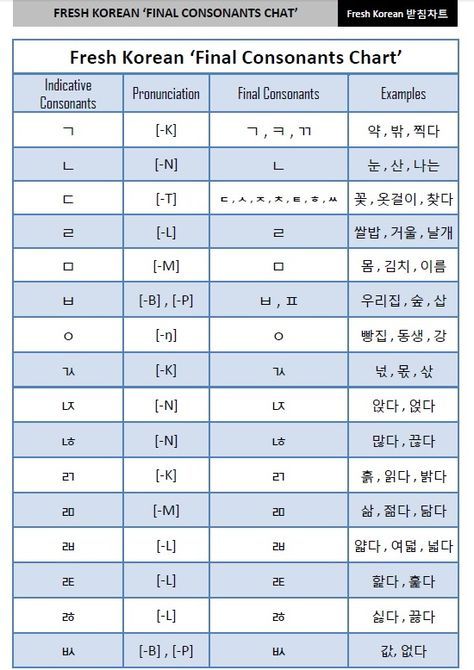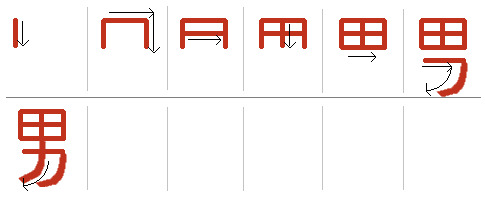#여 words
Explore tagged Tumblr posts
Text
some more words related through Hanja characters:
If you don't know what Hanja is, it refers to the Chinese-derived words of the Korean language. Pretty much half of Korean comes from originally Chinese words (and therefore will share pronunciation similarities with actual Chinese) and the rest is pure Korean.
Just like Latin and Greek is to English (e.g. aqua- hydro- indicate relation to 'water'), we can remember some Hanja to make semantic links between words in Korean.
The majority of Korean people's names have Hanja equivalents and could be written out in Chinese (sometimes required on official documents) and will be chosen by their parents based on the traditional semantic meaning. However, in the last few decades more Korean people are giving their kids pure Korean names with nice meanings such as 사랑, 보라, 하나, 하늘, 진주. More on Korean names in a future post!
Anyway, on with some semantic Hanja word links.
Marriage related words - 혼
결혼 - marriage
이혼 - divorce
약혼 - engagement (does the 약 part also seem familiar? It's the same 약 in 약속 - promise, and 예약 - appointment.)
기혼 - married (as in the person's status)
미혼 - unmarried, single
water related words - 수
수달 - otter
생수 - drinking/fresh water
수상 스키 - water ski (상 is a Hanja meaning 'above')
홍수 - flood
호수 - lake
school related words - 학 and 교
학교 - school
학생 - student
교복 - school uniform (your probably know what Hanbok is right? 한 - Korea 복 - clothing. That's the same 복.)
교육 - education
middle related words - 중
중국 - China (국 is the character used in country names)
중학교 - middle school
중급 - middle/intermediate level
중 - medium size (might see on a menu with portion options)
beauty related words - 미
미국 - the U.S.
미녀 - beautiful woman
미용실 - beauty salon/hairdressers
people related words - 인
인간 - human
~인 - person from ~ country (a Korean, a Brit, a German etc)
인생 - life
인기 - popularity
인사 - greeting
인삼 - ginseng (so called because the root resembles a person)
개인 - personal, private
주인 - owner
부인 - wife
female related words - 여/녀
여신 - goddess
미녀 - beautiful woman
마녀 - witch
그녀 - she
여성 - female
소녀 - girl (소 is another Hanja meaning small)
#cannot think of anymore rn its 10pm lol#korean study#korean learning#korean grammar#langblr#korean langblr#korean studyblr#korean vocab#hanja
24 notes
·
View notes
Text

문이 열리지 않으면 사용중이므로 잠시만 기다려 주세요 in use if the door isn't open, please wait a moment • 문 door • -이/가 subject marking particle • 열다 open • -이/히/리/기 passive voice, usage is determined by word’s 받침 • -지 않다 to not be • -(으)면 if • 사용중 in use (사용 use, usage, 중 in the middle of) • -이므로 because, since (formal, typically used in written instances) • 잠시만 just a moment • 기다리다 wait • -아/어/여 주세요 please do (for me) (주다 to give)
18 notes
·
View notes
Text
there was a post in the tags saying that jaewon meant guy friend rather than boyfriend at the store and i just wanted to clarify:
i went back and re-listened and jaewon did in fact say 남자친구 (namja chingu; boyfriend). the thing is, korean does have a word for someone who is just a friend. 남자친구 (namja chingu) exclusively means romantic boyfriend because no one would ever call their friend "my boy friend" (also this is a gender thing!! like in english we would call our female friends our girl friend but guys typically would not call their guy friends their boy friends). you would just call them a friend as gender doesn't matter when speaking; korean is contextual. and like in english, if you would need to give more context, you would explain yourself like "yeah my friend's a guy" "친구는 남자예요” etc. i understand this can be confusing since 남자 namja literally means man and 친구 chingu means friend, but when you put namja and chingu together, it becomes boyfriend (romantic)
this nuance is built into the standard language, but if he were to have said a word for "my friend that is a guy" there is a well-known slang term in korean: 남사친 (namsachin). 남사친 is short for "남자 사람 친구” (namja saram chingu). 사람 or saram means person so the translation becomes my friend that is a boy. it's the same for girlfriend/friend that is a girl you would just put 여 at the beginning (여자, yeoja = girl/woman; 여사친 etc.)
however, namsachin is informal so like explained above, jaewon meant boyfriend (as in romantic) because that's the nuance of the word in korean (unlike english where you could say "guy friend"). he wouldn't have used slang with an elder
i get that translations don't often catch the nuance, but in this case, i would say that the translation was 100% correct :')
#the eighth sense#icb i'm procrastinating my actual uni work to do nerd shit like this but i had to clarify 😭😭😭
187 notes
·
View notes
Text
Hangul: vowels.
2024년 7월 24일
안녕하세요 여러분!
Today, we will start learning the hangul vowels.
아 {a} ~ 야 {ya}
어 {eo} ~ 여 {yeo}
이 {i}
애 {ae} ~ 얘 {yae}
에 {e} ~ 예 {ye}
오 {o} ~ 요 {yo}
우 {u} ~ 유 {yu}
으 {eu}
Be careful with “애 and 얘 (ae/yae)” because you’ve to pronounce it as “-e/-ye” too. That’s the way you write it in romaji. Also, 어 and 여 is more like and -o/-yo.
And that would be it for the first part! We will need consonants to form syllables and then form words from it. There are also the diphthongs, which I will show you after the consonants.
#koreannook#korean langblr#korean language#korean learning#korean study#korean studyblr#learn korean#learning korean#koreanblr#korean grammar#korean vowels#hangul#hangul alphabet#study korean#한국어#한국어 공부#한국어 배우기#한국어 공부하기#langblr#studyblr
3 notes
·
View notes
Text
Learn Korean with me - Week 1/Day 1
Day 1: Letters, Syllables Blocks, Writing Practice, Final Consonant/Consonant Assimilation
Vowels:
A 아
YA 야
EO 어
YE 예
YEO 여
O 오
YO 요
U 우
YU 유
EU 으
I 이
AE 애
YAE 얘
E 에
YE 예
Complex Vowels:
WA 와
WO 워
WAE 왜
WE 웨
OE 외
WI 위
UI 의
Consonants:
G ㄱ
D ㄷ
J ㅈ
B ㅂ
NG ㅇ (no sound)
N ㄴ
S ㅅ
M ㅁ
H ㅎ
R ㄹ
K ㅋ
T ㅌ
CH ㅊ
P ㅍ
Complex Consonants:
KK ㅋㅋ
TT ㄸ
JJ ㅉ
PP ㅃ
SS ㅆ
GG ㄲ
Syllable Blocks:

Writing Practice:



Final Consonants/Consonant Assimilation:

This chart includes 4 different parts all relating to Korean final consonants:
1) Indicative Consonants: Basically what each of the final consonants are based on. 2) Pronunciation: How each of the different final consonants sound. 3) Final Consonants: These are all of the different final consonants. 4) Examples: 2 or 3 different words which include the different Korean final consonants.
I also have a class from Udemy.com
Complete Korean Course: Learn Korean for Beginners
If you have this - you can watch Lessons 1 - 3.
#Learning Korean#Korean#Hanguel#BTS#Bangtan#RM#Jin#Suga#J Hope#Jimin#V#Jungkook#South Korea#Korea#motivation#that girl#badass#glow up#Military Wife#We Will Wait#2025#travel#self care#self improvement#love#borahae#fighting#no more excuses#2024
4 notes
·
View notes
Text
Summary:
when 아/어/여 is used in the middle of a sentence, it is actually short for 아/어/여서
this shortened form is used with "because..." and "then..." meanings
CANNOT be shorted with the meaning "by [means of~]"
see: 나도 해 보고 ��었는데 발이 논에 푹푹 빠져(서) 걷기도 힘들었다
2 notes
·
View notes
Text


Got it.
여기, 거기, 저기 = here, there, over there
사람 = person
이= 이/가 (subject marker) emphasizes the subject itself (the noun coming before 이/가).
이 goes with words ending in Consonant
가 goes with words ending in vowel. in is a constant.
자동차/차 = Car (unsure of difference between both versions, I think 자동차 is more automobile vs 차 vehicle but that 차 is used as a abbreviation of 자동차.
에 / 에서 = particular used for either time or location and can also dependingnonncontext be read as “at,” “to,” “on” or “in where as particle 에서 can also mean “at,” “in” or “from” and marks where an action is performed or a temporary point of departure. I assume witnessing someone getting hit by a car is not an action you perform so maybe that's why they don't use 에서?
치이다 (dictionary form before conjugation and use of honorifics) = to be hit (by), be run over[down] (by), be knocked down (by).
이었어요/였어요 = is a past tense ending for a noun that means was/were.
When there is a final consonant, you use [이었어요] and when there is no final consonant, you use [였어요] and this word does not end in a consonant.
치이다 + 였어요 = 치이 (remove 다) + 었어요 = 치 이 + 어 combine to make 여 = 치 + 였 + 어요 = 치여어요.
So, a more literal read: here (where I am) person (is subject, not me) car hit (by) was.
I'm getting there. It's progress. I'll learn more as I go.
#hit#car#korean#hit by a car#somebody#person#사람#치이다#에#차#여기#이#papago#learning#learning a language#learning korean#emergency#phrase#lol#funny#06/30/23#june#2023#summer
1 note
·
View note
Text
Life Goes On | Lyric Breakdown (1/2)
youtube
Hi there! Following is an extremely extensive lyric breakdown. Please don't feel overwhelmed by the sheer amount of links down there- they're all there to help you along! HERE is a link to a lil guide to making the most out of this lyric breakdown that I highly recommend you check out before diving in <3
[Verse 1]
어느 날세상이 멈췄어
One day, the world stopped
세상이 (Subject Marking Particles 이/가) 멈췄어 (Past tense)
아무런예고도 하나없이
Without any warning at all
예고도 (Particle meaning ‘Too, also’)
봄은 기다림을 몰라서
Spring didn’t know how to wait, so
봄은 (Topic Marking Particles 은/는) 기다림을 (Object Marking Particles 을/를) 몰라서 (Verb Ending -아/어/여서 that connects verbs & shows a logical relation between them)
눈치없이와버렸어
It arrived obliviously
와버렸어 (Grammar Structure -아/어/여 버리다 used to express a completed action)
발자국이 지워진거리
Streets erased of footprints,
지워진 (Grammar Structure -아/어/여지다 meaning ‘to become something’)
여기넘어져있는나
And me, who has fallen here
넘어져있는 (Present Progressive Tense)
혼자가네 시간이
Time’s flowing by itself
가네 (Verb ending -네요)
미안해말도 없이, yeah
Without even a word of apology
[Verse 2]
오늘도 비가 내릴것같아
It seems like it’ll rain today, too
내릴 것 같아 (Sentence Structure -(으)ㄴ/(으)ㄹ/ㄴ 것 같다 used to say ‘I think…’)
흠뻑젖어버렸네
I’ve become soaked to the skin
아직도 멈추질않아
But it still won’t stop
멈추질 (Future Tense)
저먹구름보다빨리달려가
I run faster than those dark clouds,
먹구름보다 (Particle meaning ‘More something than something’)
그럼될 줄 알았는데
Thinking that it’d be okay then
알았는데 (Linking Verb Ending -는데)
나 겨우사람인가봐
But I guess I’m only human
사람인가 봐 (Verb Ending -(으)ㄴ가 보다 to make guesses & assumptions)
몹시아프네
It hurts so bad
세상이란 놈이 준감기
The cold this bastard called ‘the world’ gave to me
세상이란 (Verb Ending -(이)라는 것 define something or comment on its nature) 준 (Verb ending -는 것 to make action verbs into nouns)
덕분에 눌러보는먼지쌓인되감기
Allows me to push the dust-ridden rewind button
덕분에 (‘Thanks to’) 되감기 (Changing a verb to a noun using -기)
넘어진채청하는엇박자의 춤
From where I’ve fallen, I request an offbeat dance
엇박자의 (Possessive Particle 의)
겨울이오면내쉬자
When winter comes, let’s exhale
오면 (Particle to say 'if, in case') 내쉬자 (‘Let’s + verb’ in casual language)
더뜨거운숨
A hotter breath
더 (More)
Unfortunately, tumblr does have some sort of controls regarding the amount of links you can have in one post, sooo:
Life Goes On | Lyric Breakdown (2/2)
0 notes
Text
One-Page Masterlist
안녕하세요! Hey everyone! I recently got an ask about my old masterlist, which is the same as my broken-down masterlist except it has all of my lessons on one page, rather than on multiple separate posts. Some may find this expanded version easier to navigate, so I’ll keep this up for y’all! My broken-up masterlist, of course, will still be available for those who find that more helpful :)
Hangul Lessons
Consonants
Vowels
Writing/Reading Korean Syllables
Some 받침 Rules
Diphthongs
Stroke Order
Some More 받침 Rules
Irregular Verbs
The Basics
Common Phrases
Numbers
Sino-Korean vs. Native Korean Numbers (Instagram Post)
Sentence Structure and Particles
Present-Tense Conjugations and Formal Language
Adjectives
Questions
Honorifics and Casual Language
Beginner
Negative Sentences
잘 and 못
Past Tense
Future Tense (-ㄹ / 을 것이다)
-ㄹ / 을 까요? (Shall we…? / I wonder…?)
-(으)세요 (Giving Commands / Asking Questions)
Telling Time
-고 싶다 (I want to…)
How to Say “And”
-지만 (However)
아/어/여서 (So…)
Negative Commands
Spacing (띄어쓰기)
Adverbs
ㅂ Irregular
Comparatives and Superlatives
난, 날, & 내가
Upper-Beginner
-(으)면 (If…)
아/어/여도 (Even though…/Even if…)
(으)면 되다 / 아/어/여도 되다 (I can…/You may…)
-아/어도 되다: Asking for and Giving Permission (Instagram post)
-(으)면 되다 & -(으)면 안 되다 (Instagram post)
아/어/여야 되다 and 아/어/여야 하다(Have to / Should)
Present Progressive (-고 있다)
How to Say “Or”
-아/어/여하다
All About 중
How to Use -(으)로
Before & After
-ㄴ/은 채로
Intermediate
Describing Nouns with Verbs (-는 것)
Describing Nouns with Verbs - Past & Future Tense (-ㄴ/은 / -ㄹ/을 것)
Nominalization
것 같다 (I think… / It seems…)
-러 가다 / -러 오다
-(으)려고 (In order to…)
-기로 하다 (to Decide to do Smth)
척하다 (To Pretend)
-게 되다
-군요 / -구나
아/어/여 보다 (to try…)
-은/ㄴ 적 있다 / 없다 (I have / have not)
-ㄹ/을 게요 (Future Tense)
겠다
-ㄹ/을 수 있다/없다 (I can / cannot)
-ㄹ/을 때 (When…)
-ㄴ/는다면 (If)
-(으)면서 and -(으)며
-(으)니까 (Because / So)
-아/어/여주다
-(ㄴ/는)다 (Narrative Form)
Quoting
Let’s…
Quoting continued
(으)ㄹ래요? (Wanna…?)
-죠
-대로
More Quoting - 대 & 래
잘하다 & 못하다 vs. 잘 하다 & 못 하다
-아/어 가지고
-(으)려면
-는 길에 & -는 길이다
-(으)면 vs. -ㄴ/는다면 (Instagram Post)
-았/었을 것이다
-느라고
-는 데(에)
-ㄹ/을 뻔하다
Upper-Intermediate
-ㄴ/는데
-(으)ㄴ/는지 (Whether or not)
-(이)라는…
All About 아무리
-잖아요
Expressing Surprise
-시 (Honorific)
Making Comparisons
-아/어/여지다
I might…
So that…/To the point where…
Causative Verbs
시키다
Passive Verbs (part 1)
Passive Verbs (part 2)
-ㄴ/은가 보다 & -나 보다 (I guess…)
-ㄹ/을수록
Other Meanings of 싶다
-자마자 & -는 대로(As soon as…)
-긴 하다
-치고
-김에
차라리 (Rather)
-(으)ㅁ Nominalization
-기는 무슨 & -기는 개뿔
-고 보니까
-듯(이)
버리다
-(으)면 좋겠다 & -(으)면 하다
-길 바라다
Advanced
-거든(요)
-줄 알다/모르다
-ㄹ/을 테니까 and -ㄹ/을 텐데
-았/었던
아니라 and 대신에
-ㄹ/을 리가 없다
편이다, 별로, and More
-지 그렇다 (Why don’t you…?)
-ㄹ/을 걸
-ㄹ/을 까 보다
-다면서요
-다니 part 1
-다니 part 2
뜻이다 & ���이다
-다가
-더라고(요)
-더니
Some colloquialisms: 아니시에이팅 and 뭐 이렇게
-(으)ㅁ Sentence Ending
-다 보니까
What does 따위 mean?
-ㄴ/는데도
Korean Idioms
Vocabulary
Must-Know People
Must-Know Places
Must-Know Things
Must-Know Verbs
Must-Know Adjectives
Countries
Months, Days of the Week, and More
Clothing (옷)
School (학교)
Autumn (가을)
Autumn (w/Pictures!)
More Questions
House / Apartment (집 / 아파트)
Emotions / Feelings ( 감정)
Animals (동물)
Loan / Konglish Words
Food and Drink (먹을 것과 마실 것)
Parts of the Body (몸)
Counters
Modes of Transportation (교통 수단)
Colors (색깔)
Colors (with Pictures!)
Weather (날씨)
Winter (겨울)
Music & Instruments (음악과 악기)
Baking Gingerbread Cookies
Emergency (비상)
Hygiene & Bathroom (위생 & 화장실)
Indefinite Pronouns
Work / Office (일 / 사무실)
Spring (봄)
Coronavirus Prevention (코로나바이러스 방역)
How to Wash Your Hands (손을 씻기)
Time (시간)
Korean Cuisine (한식)
Summer (여름)
Summer (여름) w/Pictures!
Graduation (졸업)
Identity (독자성)
Korean Text Slang
Similar Words
Makeup w/Pictures! (화장품)
Family (with Pictures!)
Pronouns
How to Say “Still” and “Already” in Korean
Tastes & Textures (맛과 질감)
K-Pop Audition
K-Pop Fandom Terminology
Different Ways to Say “Change”
Flower Names
What Does 원래 Mean?
What does 오히려 Mean?
College
Hanja Lessons
최
수
악
식
급
동
부 & 불
애
출
퇴
예
음
중
학
습
연
생
대
입
인
문
감
과
원
특
만
후
무
Charts
Present, Past, and Future Tense
Question Words
잘 vs. 못 and Negative Conjugations
Future Tenses
-았/었던 vs. -던 (at end of lesson)
Particles
Some 받침 Rules
Gifving Commands
Conjunctions and -아/어/여서 vs. -(으)니까
-(으)면 vs. -다/라면 and Different Ways to Say “And”
How to Say “Or” (at end of lesson)
Telling Time (at end of lesson)
Comparatives and Superlatives
잘하다 & 못하다 vs. 잘 하다 & 못 하다 (at end of lesson)
Comparing 잘하다/못하다, 잘 하다/못 하다, & 수 있다/수 없다
Irregular Verbs
Pop Quizzes
Level 1
K-Pop Breakdowns
TXT - “Cat & Dog”
Twice - “Feel Special”
Enhypen - “Fever”
2NE1 - “Go Away”
Lee Hi - “Only”
“기억을 걷는 시간 (Time Spent Walking Through Memories)”
KCM - “An Old Love Story (흑백사진)”
Taeyeon - “Can’t Control Myself”
Epik High - “Lost One”
Colde - “A Song Nobody Knows”
IU - “My Sea”
Enhypen - “Polaroid Love”
유라 (youra) - “하양 (RAL 9002)″
BTS - “Ddaeng”
Stray Kids - “For You”
Woozie - “어떤 미래 (What Kind of Future)
TXT - “Eternally”
LOONA - “Heart Attack”
Stray Kids - “Muddy Water”
LOONA - “Girl Front”
Pentagon - “Daisy”
BTS - “Sea”
Semester in SK
Nami Island (남이섬)
Things to Buy at Daiso
Shopping Phrases
Ordering Coffee
Signs in Korea
Ordering at a Restaurant
Riding the Seoul Subway
Things at the 편의점
Korean Curse Words
Etiquette in South Korea
Drinking Culture
Hanja in Real Life
Holidays in South Korea
Korean Cuisine
Concert Ticketing in South Korea
K-pop Comebacks in Korea
Summer in South Korea
What I Learned
#korean#korean language#hangul#korean grammar#korean vocab#korean vocabulary#learn korean#learning korean#langblr#Korean langblr#masterlist#apok#apopofkorean#study korean#studying korean#kpop#kpop lyrics#basic korean#beginner korean#intermediate korean#advanced korean#hanja#한국어#한글#한자#한국어 공부하기#한국어 배우기#한국어 문법#한국어 어휘#초급 한국어
2K notes
·
View notes
Note
“You know for the longest time I’ve been aching to know, what does hyung actually mean? You told me it meant idiot but even when we were forced to be survivors you still called me that. What does it actually mean” ✘
@askthe-devilface

"Hyung (형) means older brother. It's a polite and friendly way to address an older male...preferably someone you feel close to or want to rely on."
"...The female equivalent is Noona (누나) as older sister."
"Though, if you're female you say Unnie (언니) for an older female and Oppa (오빠) for an older male. "
"If you want to address a younger person you call them your Dongsaeng (동생). In front of the word, you can add Yeo (여) for clarifying towards a female or Nam (남) for a male, but it's optional."
"I... didn't intentionally try to make this uncomfortable for either of us by assuming our relationship, and it's also why I didn't want to call you that other than by accident. As a survivor...Well, I wanted us to be closer so we could help each other."
"미안해요."
--- @askthe-devilface
#number 7#ask blog#answered meme#art#text#dbd#dead by daylight#killer interact#Ji-Woon Hak#Trickster#Ghostface#||#Knowing people's relationships/status towards one another#Is very important in Korean culture#At least if you want to address someone correctly#When in doubt: Be polite#Off blog#JiWoon called Jed Hyung on accident when talking to him#It was instinctual and he regretted it the moment he said it
144 notes
·
View notes
Photo



[𝐊𝐨𝐫𝐞𝐚𝐧 𝐆𝐫𝐚𝐦𝐦𝐚𝐫] 𝐈𝐧𝐝𝐢𝐫𝐞𝐜𝐭 𝐐𝐮𝐨𝐭𝐚𝐭𝐢𝐨𝐧 (𝐏𝐚𝐫𝐭 𝟒) 라고 하다 ✏️𝐔𝐬𝐚𝐠𝐞 - ~라고 하다 is used to quote a statement in which a person insists on or demands something. - ~라고 하다 is used to indirectly quote an imperative statement. - The negative form of ~라고 하다 is ~지 말라고 하다. - It is equivalent to (someone) requested, (someone) told… to do (something) in English ✏️ 𝐂𝐨𝐧𝐣𝐮𝐠𝐚𝐭𝐢𝐨𝐧 V-(으)라고 하다 After removing 다 from the root word add ~라고 하다 if the verb stem ends with vowel and add add ~으라고 하다 if the verb stem ends with consonant. E.g. 가다 → 가라고 하다 입다 → 입으라고 하다 기다리다 → 기다리라고 하다 ✏️ 𝐍𝐨𝐭𝐞 When quoting an imperative sentences with 주다, we will have two case: - V-아/어/여 달라고 하다: used when the original speaker of the quoted sentence telling the listener to give/do something directly to him/her. E.g. 수지 씨는 물을 달라고 했어요. (Suzy asked me to bring her some water.) 민수는 숙제 도와달라고 했어요. (Minsu asked me to help her with her homework.) - V-아/어/여 주라고 하다: used when original speaker of the quoted telling the listener to give/do something to another person. E.g. 수지 씨는 상민 씨에게 물을 주라고 했어요. (Suzy asked me to give some water to Sangmin.) 민수는 수지한테 숙제 도와주라고 했어요. (Minsu asked me to help Suzy with her homework.) ✏️ 𝐄𝐱𝐚𝐦𝐩𝐥𝐞𝐬 1. 선생님이 공부 열심히 하라고 했어요. (The teacher told her students to study hard.) 2. 아빠가 술 마시지 말라고 했어요. (Dad told me to not drink alcohol.) 3. 민경 씨가 전화해 달라고 했어요. (Mingyeong asked you to call her back.) 4. 그들에게 조용히 해 달라고 했지만 그들은 아직 너무 시끄러워요. (I told them to “please be quiet,” but they are still very loud) 5. 선생님께서 유리 씨를 도와주라고 하셨어요. (My teacher told me to help Yuri.)
-
Kindly Visit My Blog Here
Available Products Here
Available Korean Writing Notebook Here
#Korean Language#Korean Grammar#Grammar Tips#Learn Korean#Study Korean#Study with me#Self Study#한국어#한국#한국어공부중#한국어 공부하기#한국어공부#Hangul#한국어단어#한국어수업#koreanstudytimes#한국어 배우기#한국어배우
7 notes
·
View notes
Text
Journey to Fluency: 4일 - 210128
어휘 (Vocabulary)
My memrise deck
러시아: Russia
(으) 로: toward
마시다: to drink
마트: mart
만: 10000
만나다: to meet
만나서 반가워요: nice to meet you (informal)
만들다: to make
많다: to be many
많이: a lot, many, plenty
말하다: to speak
맛없다: to be tasteless, unsavory
맛있게 드세요: enjoy your meal
맛있다: to be delicious, tasty
맵다: to be spicy, hot; to be intense
���다: to eat
멀다: to be far
멋있다: to be attractive, stylish, cool
메뉴판: menu
멕시코: Mexico
한자 (Hanja)
Links:
HowToStudyKorean
My memrise deck
人 = 인 (사람 인): person

시人 (시인)= poet
개人 (개인)= person(al)
人간 (인간)= man, human, mankind
子 = 자 (아들 자): person
Technically it’s called “son 자” but can be found in words where the meaning is male or female

여子 (여자)= girl
남子 (남자)= man
子식 (자식)= children
子녀 (자녀)= sons and daughters
의子 (의자)= chair
모子 (모자)= hat
탁子 (탁자)= table
父 = 부 (아비 부): father

父모님 (부모님)= parents
父친 (부친)= father
학父모 (학부모)= parents of children at school
母 = 모 (어미 모): mother

父母님 (부모님)= parents
母국어 (모국어)= mother tongue
고母 (고모)= father’s sister (aunt on father’s side)
이母 (이모)= mother’s sister (aunt on mother’s side)
男 = 남 (사내 남): man, male

男子 (남자)= man
男성 (남성)= male
男녀 (남녀)= men and women
장男 (장남)= oldest son
男동생 (남동생)= younger brother
男편 (남편)= husband
女 = 여/녀 (계집 여/녀): woman, female

女자 (여자)= woman
女성 (여성)= female
女동생 (여동생)= younger sister
문법 (Grammar)
Book: Learn Korean with BTS 1 - Lesson 4: 오늘 어디에 가요?
N에 가다/오다
It’s used to indicate that the subject of a sentence moves to a particular place
If it moves from... * The speaker’s current site to another → N에 가다 *From the current site to where the speaker is → N에 오다
AV (으)세요
It’s used to require or command someone to do something
If AV ends with... *a consonant → AV으세요 *a vowel or ㄹ → AV세요 * ㄷ, this ㄷ changes for a ㄹ if it’s followed by a vowel
Happy learning!! ^^

#korean lesson#korean learning#korean language#korean langblr#한국어#한국어 공부하기#한국어 배우기#korean words#learn korean#korean
17 notes
·
View notes
Text

DIALOGUE:
1: 아까 뭐 하고 있었어요?
2: 심심해서 그림을 그리고 있었어요.
1: 그림을 자주 그려요?
2: 네, 저는 주로 인물을 그려요. 사람들의 다양한 모습을 그리는 것을 좋아해요.
1: 그럼 저도 그려 줄래요?
2: 네, 예쁘게 그려 줄게요
Detailed Explanations For Everything
Sentence by Sentence Breakdown
*all sentences covered
🤔아까 뭐 하고 있었어요?
아까 = a while ago
뭐 + 하다 = what to do
뭐해요/뭐하고 있어? = what are you doing?
뭐했어요/뭐하고 있었어요? = what were you doing?
고 있다 = present progressive (V-ing)
고 있었다 = past progressive
(was V-ing)
✍️심심해서 그림을 그리고 있었어요.
심심하다 = to be bored
아/어/여/해서 = so; because
그림 = drawing, picture
그리다 = to draw
😯그림을 자주 그려요?
자주 = often
그리다 = 그려요
😃네, 저는 주로 인물을 그려요. 사람들의 다양한 모습을 그리는 것을 좋아해요.
주로 = usually
인물 = character
"사람들의.."
들 = plural particle
> makes a word plural
사람 = person
사람들 = people (more than one person)
의 = possessive particle
shows possession (my phone, his car, their school, etc.)
> adds ('s) example - nina('s) book
"사람들의 다양한 모습.."
The verb describes the noun in this sentence
다양하다 = various, different.
모습 = figure, appearances
다양한 모습 = various figures
What kind of figures?
> Various
사람들의 다양한 모습
People's various figures
Or various appearances[images] of people
-는 것 is attached to a verb to change a verb into a noun clause like ‘-ing’ or ‘to -‘.
것 = thing
그리는 것 = drawing; to draw; the act of drawing; the thing one draws
그리는 것을 좋아해요
= one likes drawing or one likes to draw
Examples:
먹는 것을 좋아해요
= one likes to eat
😊그럼 저도 그려 줄래요?
그럼 = then
저 = me, i
도 = also
아/어/여 주다 = to give; to do for (someone)
ㄹ래(요) = suggesting something to someone, asking for a person's opinion
...그려 줄래요?
Can you draw..?
😇네, 예쁘게 그려 줄게요
네 = yes
예쁘다 = to be pretty
-게 = turns adjectives into adverbs
corresponds to "in a manner, so that.." or sometimes simply can add the "-ly"
EX:
빠르다 = to be fast, quick
빠르게 = quickly
but of course 빨리 is used most commonly instead of this word to mean the same thing
ㄹ게요 = express your intention to do something
> one will -V or one will do
그려 줄게요
I will draw
'예쁘게 그려 줄게요'
I will draw something [in a manner that is] pretty
Vocabulary List 단어장
아까 a while ago
뭐 what
하다 to do
심심하다 to be bored
그림 drawing; picture
그리다 to draw
자주 often
네 yes
저 me; i
주로 usually
인물 looks; features (the appearance of a person)
사람들 people
다양하다 various, diverse, different
모습 figure; appearance; looks
좋아하다 to like
그럼 if so; then
주다 to give
#korean language#korean langblr#korean lesson#study korean#korean vocab#한국어#learning korean#learn korean#korean
92 notes
·
View notes
Note
Hi ! It's so nice of you to give us explanations and insights about for us i-armys, thank you sm ! I was wondering : ppl tend to bring up the fact that Jm described Jk as a "younger brother" to him to deny any potential love relationship between them but... didn't he use the word "dongsaeng"? Does it really mean "brother"? I thought it was more of a junior/senior thing? Even a k-army called me out ans referred about this and saying I was delusional ab Jikook so I'm a bit confused :/
Hi anon!
“Dongsaeng” is a gender-neutral term that refers to someone who is younger than you in age. It isn’t strictly to be used for familial relationships the way “남동생/namdongsaeng” (little brother) or “여동생/yeodongsaeng” (little sister) might be. “Dongsaeng” is a classification with familial connotations to indicate closeness. For Jimin and Jungkook, hyung/dongsaeng is how all of external society would categorize their relationship since they’re not same age friends or (publicly) a couple. Whether Jimin thinks of Jungkook as only his dongsaeng in the private sphere, we have no way of confirming until he tells us. Until then, it would be weird if Jimin stopped referring to Jungkook as his dongsaeng... because that’s what he is. Just because it has familial connotations doesn’t mean there’s no room for a potential romantic relationship between them. It’s not impossible, and Jungkook being called a “dongsaeng” is no grounds for being accused as delusional!
92 notes
·
View notes
Text
Korean Grammar Lessons
Basics of Korean Grammar
Korean Parts of Speech Introduction(품사)
Substantives & Independent words(체언&독립언)
Modifiers(수식언)
Verbs&Adjectives(용언) + Postposition(관계언)
Fundamental Constituents(주성분) Part 1 : Subject & Complement
Fundamental Constituents(주성분) Part 2 : Predicate & Object
Supplementary Constituents(부속 성분)
Practice Constituents of Sentence
Korean Postpositions
Postposition Introduction(조사)
Subject Marking Particle & Complement Marking Particle(주격 조사&보격 조사)
Object Marking Particle(목적격 조사)
Adnominal Marking Particle & Independent Word Marking Particle(관형격 조사&호격 조사)
Adverbial Marking Particle(부사격 조사)
Predicate Marking Particle(서술격 조사)
Assistant Postposition(보조사)
Conjunction Particle(접속 조사)
Verbs&Adjectives Conjugation
Verb&Adjective Introduction(용언)
Final Ending(어말 어미)
Pre-final Ending(선어말 어미)
Noun Derivational Ending(명사형 전성 어미)
Intransitive Verb & Transitive Verb(자동사&타동사)
Verb&Adjective Quiz
Advanced Conjugation
'여' Irregular Conjugation('여' 불규칙)
'르'/'ㄷ'/'ㅅ' Irregular Conjugation('르'/'ㄷ'/'ㅅ' 불규칙)
Tense
Past Tense(과거 시제)
Present Tense(현재 시제)
Future Tense(미래 시제)
Passive and Causative Forms
Passive Voice(피동 표현)
Causative Expression(사동 표현)
Honorifics
Honorifics depending on object(객체높임법)
Honorifics depending on listener(청자높임법)
Last updated 201222(Updated Regularly)
#korea#korean#grammar#korean grammar#langblr#studyblr#korean langblr#korean study blog#korean studyblr#learn korean#Admin Yu
840 notes
·
View notes